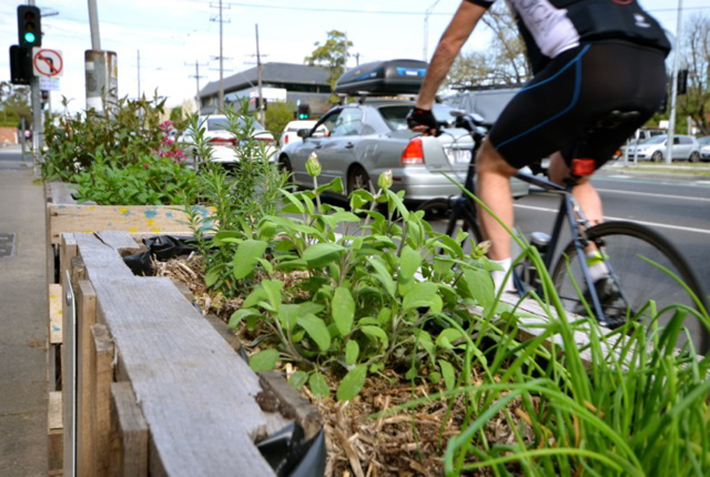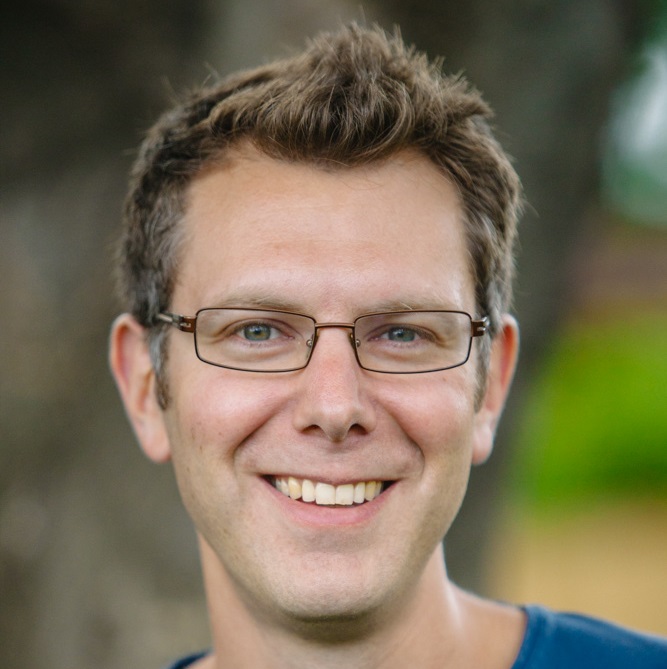HerbShare is a project in Melbourne Australia to bring neighbours together to create a new food commons by mapping herbs and other food growing in front yards and public areas. In this interview HerbShare co-founder Ben Hart talks about his grand plan for everyone to have access to an abundance of fresh herbs in their neighbourhood.
HerbShare's crowdfunding campaign hopes to raise funds to launch the first iteration of its website and runs to June 30.
Shareable: What was your motivation for starting HerbShare? How did it come about?
Ben Hart: I was at home one Sunday night, cooking a lamb roast and forgot to get the rosemary. The shops were closed so I went out looking for rosemary, found some around the corner then stole it. It got me thinking about how you could use the internet to map all those herbs on fencelines, and ensure there was consent from the owners of the herbs.
Wouldn't it be great to interact with people instead of sneaking around? I strong-armed my little brother, Flynn, who is a landscape architect, to help me develop the idea and two years later we're almost to the point of building a website
Given HerbShare is creating a distributed food resource or commons, how will you manage the fair distribution of resources when strangers will be accessing herbs from private property? Is there a reputation management or review system?
People will be able to give feedback on the herbs on offer at various sites, in a similar way to the checks and balances that occur on websites like ebay or airbnb. If you're there just to take and not to give, it will become clear pretty quickly. Ultimately though, HerbShare simply puts a structure around practices that have been occurring for centuries – people sharing food in a way that respects their neighbours.
Are there plans to create HerbShare sites in public areas or community gardens? This seems like something local government could support.
HerbShare will be open to any and all existing and new areas where herbs are growing, whether it's community gardens or restaurant gardens or front gardens. With herbs being increasingly planted by councils in public parks, we don't see any reason why HerbShare can't plot these existing resources, to make the map as comprehensive as possible.
How will you be reaching out to Melbourne's passionate foodies whether chefs, artisans or home cooks? Why is the connection between sharing and food so strong?
We've had a great response from the restaurant and cafe community. Adrian Richardson from La Luna in North Carlton has been a wonderful supporter and pledged to put his restaurant garden on the map. Other cafes have approached us with a similar desire to be part of HerbShare. Among other things, it makes great business sense. Sharing herbs and other produce flags a restaurant as a valuable part of a community, and it also underlines to lots of potential customers that it's an eatery that cooks with fresh produce.
What's your long term vision for HerbShare?
We see a future where no one ever has to buy supermarket herbs ever again because they can just check HerbShare and walk out their front gate and choose from an abundance of fresh herbs in their neighbourhood.
What advice do you have for other social entrepreneurs trying to bring the sharing economy to life in their communities?
Don't expect it just to happen. It takes a lot of work, no matter how good the idea is. You have to be prepared to work hard, collaborate, fail, adapt and fail again.









